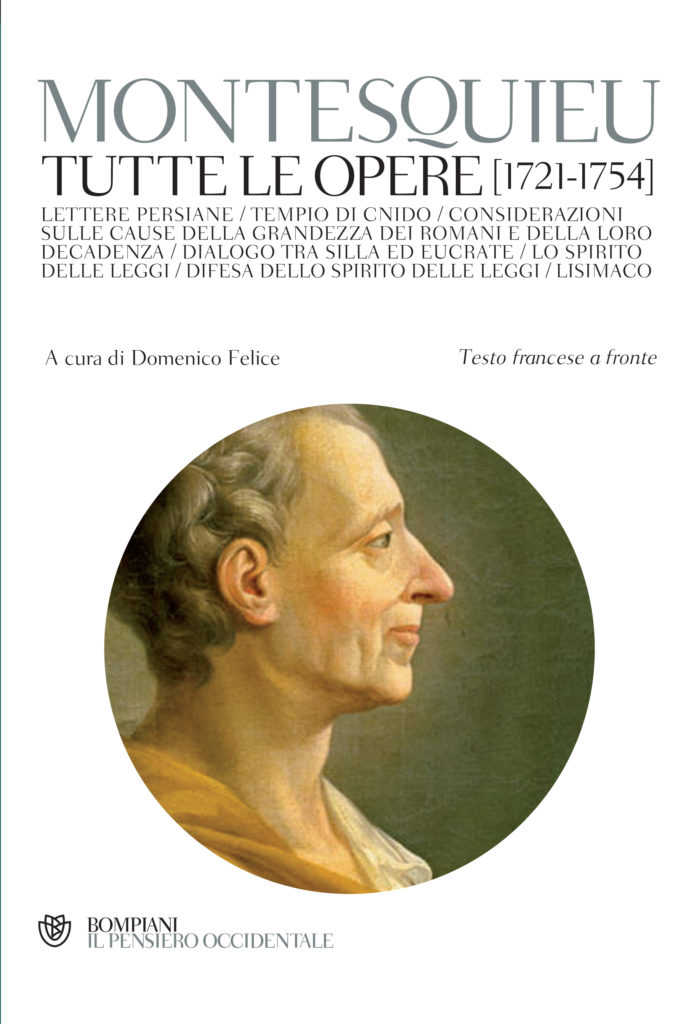You can also visit: Academia.edu
6°- “La Boetie secondo La Boetie. A proposito di una recente edizione del Discorso sulla servitù volontaria“, 2017 (La Boétie according to La Boétie. About a recent publication of the Discourse on Voluntary Servitude) – Paper
In: Montesquieu.it, No 10, academic journal of the University of Bologna
The purpose of this paper is to analyze some tendencies in the interpretation of the Discourse on Voluntary Servitude of Étienne de La Boétie with a critical approach, taking into consideration a recent publication of the discourse. The paper focuses on the recovery of the full organic theory of La Boétie and of some of the text’s key-concepts, such as “human nature” and “habit”. It opposes the idea of a concrete political militancy of the text, arguing that the work of La Boétie is, as Montaigne indicates, an intellectual exercise on human nature and liberty.
LINK: Montesquieu.unibo.it
5°- Voltaire, Saggio sui costumi e lo spirito delle nazioni, 2 voll., i Millenni, Torino, Einaudi, 2017, chapters 32-93 – Translation of the “Essai sur les mœurs et l’esprit des nations” by Voltaire from French to Italian and Editing
LINKS: www.einaudi.it – Montesquieu.it
REVIEWS: www.ilsole24ore.com – www.lastampa.it – ilmanifesto.it

4°- Montesquieu, Tutte le opere (1721-1754), a cura di D. Felice, Il Pensiero Occidentale, Milano, Bompiani RCS, 2014, chapter “Indice degli argomenti trattati nello Spirito delle Leggi e nella Difesa” (Index of the topics covered in The Spirit of the Laws and The Defense) – Translation from French to Italian.
LINKS: Academia.edu – Montesquieu.it

3°- “La Boétie e Montesquieu: la natura umana di fronte all’oppressione politica (La Boétie and Montesquieu: Human Nature in the face of Political Oppression) – Paper
In: Storia della filosofia. Sibi suis amicisque, a cura di D. Felice, Clueb, 2013
The purpose of this paper is to show some common points of contact between the thought of La Boétie and that of Montesquieu. Their positive image of human nature will be analyzed in comparison with their consideration of human beings in society, especially within tyranny, or despotism. They denounced the voluntary servitude of the people and urged them to change their condition. Montesquieu draws a complex state theory in order to repair man’s aberrations. Within their modernity, they are both moved by a similar stoic idea of human dignity and virtue.
LINK: Montesquieu.it
2°- “Natura umana e propensione al servilismo politico in Étienne de La Boétie” (Human Nature and Tendency to Political Subservience in Étienne de la Boétie) – Essay
In: Studi di storia della filosofia politica, a cura di D. Felice, Bologna, Clueb, 2012
The purpose of this essay is to reveal the complete anthropological view inside La Boétie’s Discourse on voluntary servitude. At first, the author draws an idealistic image of the human nature, forged for fraternity and spirit of liberty. But as his description of the historical reality progresses, he is forced to recognize that man is easily corrupted and servile towards authoritarian governments: so appears his true nature. La Boétie urges men to change their condition.
LINK: Montesquieu.unibo.it
1°- “Naturalismo e visione della società in Giulio Cesare Vanini” (Naturalism and the view of society by Giulio Cesare Vanini) – Paper
In: Studi di storia della cultura. Sibi suis amicisque, a cura di D. Felice, Bologna, Clueb, 2012
The main purpose of this paper is to analyze the philosophy of nature of G.C. Vanini from a social and anthropological point of view. In this way, recognizing the authentic nature of human being is the first step to building an equitable society, because no one is ethically free without an anthropological self-understanding of his own nature. In conclusion, we’ve thematized the enlightened function of philosophy as a critical tool finalized to overcome each kind of theological imposture.
LINK: Montesquieu.unibo.it
